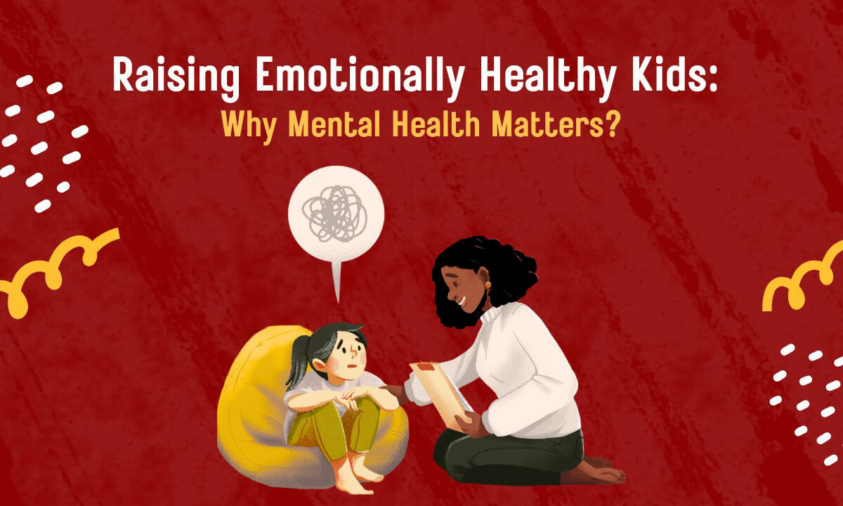Introduction
Having grown up in India, one can observe that mental health has rarely been a central topic of discussion, and this lack of awareness has had a lasting impact across generations. Many individuals struggle to acknowledge that unresolved trauma can affect not only themselves but also their children, often perpetuating unhealthy coping mechanisms. Issues such as childhood abuse, both verbal and physical, along with neglect, anxiety, and depression, are frequently passed down, creating a cycle that can be difficult to break. It is therefore essential to recognize this pattern and begin fostering an environment where children are taught the value of mental health and emotional well-being.
What is ‘emotional wellbeing’? According to CDP online, it can be characterised by several key factors:
- Self-esteem: a sound sense of confidence and value in oneself
- Resilience: the capacity to bounce back from failures and adjust to new situations
- Empathy: the ability to comprehend and experience another person’s emotions is known as empathy
- Emotional regulation: the capacity to control and react to emotional events in a healthy way
UNICEF emphasizes that parents play a crucial role in supporting their children’s mental health. Providing consistent love, care, and nurturing creates a strong foundation that helps children develop the social and emotional skills necessary for a happy, healthy, and fulfilling life.
How to reinforce emotional wellbeing and importance of mental health in children
- Establish a secure environment for Expression
Teach them that it is acceptable to experience all of life’s emotions, including joy, sorrow, rage, and terror. Promote judgement- free candid discussions. Pose straightforward, open-ended enquiries such as:
- “What was the highlight of your day?”
- “Are you worried about anything?”
- “Is there anything which I can help you with?”
- “What are some things causing frustration lately?”
- Normalise discussing mental health
Discuss emotions in the same way as you would physical health. Say things like:
- “It is completely alright to feel anxious for an exam. Let us see what we can do to handle it together.”
- “It is completely fine to feel anger. Let’s talk about it.”
- Assist with coping mechanisms
Teach kids easy coping mechanisms for stress. This can include:
- Meditation
- Breathing exercises
- Journaling or drawing
- Encouraging personal hobbies that bring happiness
- Walking or some quiet time
- Listen to some calming music
These are all some activities that can help in relieving stress. However, please emphasise the importance of talking to a trusted adult/parent, as that is one of the best coping mechanisms.
- Set an example of healthy emotional conduct
Adults teach children. Age-appropriately express your own emotions and coping mechanisms. For example:
- “I felt stressed today, so I took some deep breathes/ went for a walk, and it made me feel so much better.”
- “We were upset at each other today. That is okay. We took some quiet time instead and that really helped me.”
- “I was feeling sad, so I asked my friend for some help. We spoke about it. Now, I feel much better.”
They learn from this that it is acceptable to ask for assistance and look after their mental health.
- Promote empathy and kindness
Use storytelling, volunteer work, or small deeds of kindness to help kids understand the emotions of others. Self-esteem and social relationships are enhanced by empathy.
Conclusion
A child’s capacity to build healthy relationships with others is deeply rooted in their emotional well-being, which is significantly strengthened through positive reinforcement from parents. A child who feels secure, understood, and prepared to face life’s challenges is not simply one who avoids emotional breakdowns. It is important for caregivers to be knowledgeable about available support systems, including early intervention programs, clinical services for high-risk situations, and mental health and child welfare organizations. We must strive to raise children who recognize that expressing their emotions is a sign of strength, not weakness.
If you’re looking for customized child safety training, POCSO-related workshops, or legal advisory services, don’t hesitate to get in touch with us at +919004521614 or [email protected].
Authored by Tara Chanda, Content Writer Intern


 Cart is empty
Cart is empty 
